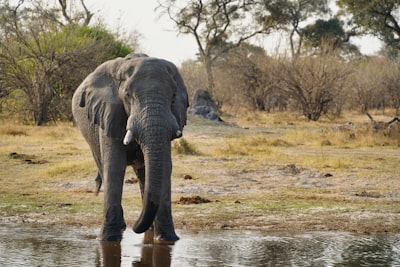Summary
Two female tourists—one British, one from New Zealand—were killed during a walking safari in Zambia’s South Luangwa National Park, after a female elephant, accompanied by her calf, charged at them. Despite interventions by safari guides, who attempted to shoot and wound the elephant to halt the attack, both women died at the scene. The incident highlights the dangers that can arise during close encounters with wildlife. Notably, this is not an isolated event; similar fatalities have occurred in Zambia recently involving foreign tourists and elephants.
Analysis
This incident underscores the unpredictable nature of wildlife tourism and raises salient questions about safety, ethics, and expectations in such settings. The key factors at play include the protective instincts of female elephants, especially when calves are present, and the inherent risks of bringing tourists into close contact with such animals on foot. While tourism is vital for Zambia's economy and the conservation of national parks, the repeat occurrence of similar attacks signals a need to review safety protocols. The guides’ decision to fire at the elephant reflects an emergency attempt at protection, but also raises difficult ethical and practical questions regarding animal welfare and the real limitations of human intervention during dangerous wildlife encounters.
Further, the coverage frames the incident as a tragic anomaly, but the repetition of such stories suggests a systemic risk that may not be fully acknowledged either by tour operators or tourists. There is little mention of whether tourists receive adequate briefing, or if existing park practices have evolved in line with the rising numbers of such fatal encounters. The article also touches subtly on the gender of the victims and the maternal aggression of elephants, perhaps implying an added layer of irony and vulnerability.
Discussion
At its heart, the tragedy reminds us of the delicate balance between adventure tourism and respect for the wild. As wildlife safaris grow ever more popular, especially among international visitors seeking immersive, authentic encounters, the pressure increases on operators to deliver both safety and "thrill." Yet, this creates a tension: wild animals, even in protected reserves, follow their instincts, which can conflict with human desires and expectations.
A broader trend emerges here—the commercialization of "wild" experiences often collides with the realities of animal behavior. Such tragedies prompt difficult questions about accountability: Are tourists sufficiently informed about the dangers? Should park authorities or tour operators do more to mitigate risks, or does part of the allure come precisely from the unpredictability of these experiences? Moreover, there is an ethical dimension to consider: firing at animals as a last resort is a lose-lose situation, born of a scenario that perhaps ought to be avoided in the first place.
Beyond the personal loss, these incidents can affect tourism reputations and economic prospects for communities reliant on safari tours. Yet, they also serve as stark reminders of nature's power—a force that cannot be entirely domesticated for human convenience. Moving forward, greater transparency, stronger risk assessments, improved guide training, and realistic communication to tourists are needed to ensure that such tragedies become genuinely rare exceptions, not perennial hazards.

Comments
No comments yet. Be the first to comment!